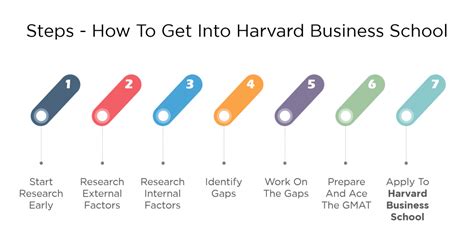Harvard MBA: Your Roadmap to Harvard Business School
The Harvard MBA. Just the name conjures images of unparalleled success, global networks, and transformative leadership opportunities. But securing a place in this prestigious program is a monumental undertaking, demanding meticulous planning, unwavering dedication, and a compelling narrative. This roadmap outlines the key steps to significantly increase your chances of acceptance into Harvard Business School (HBS).
What Makes the Harvard MBA Unique?
Before diving into the application process, understanding what sets HBS apart is crucial. It's not just about the brand; it's about the unique learning environment fostered within its hallowed halls. The case method, the vibrant community, the renowned faculty – all contribute to an experience unlike any other. HBS emphasizes leadership development, fostering a culture of collaboration and rigorous intellectual inquiry. Graduates emerge not only with advanced business acumen but also with a refined ability to navigate complex challenges and lead with impact.
The Application Process: A Step-by-Step Guide
The Harvard MBA application is notoriously competitive. Success hinges on a holistic approach, paying attention to every detail. Here's a breakdown of the key components:
1. GMAT/GRE Scores:
High GMAT or GRE scores are non-negotiable. Aim for scores well above the average. While HBS doesn't publish a strict cutoff, exceeding the 730 mark on the GMAT (or achieving a comparable score on the GRE) significantly strengthens your application. Remember, a high score is just one piece of the puzzle.
2. Undergraduate Transcript:
Your academic record demonstrates your intellectual capabilities and work ethic. A strong GPA, particularly in rigorous quantitative courses, is essential. While a less-than-perfect GPA isn't a disqualifier, it necessitates a compelling explanation and a demonstrably strong performance in subsequent academic or professional endeavors.
3. Essays:
The essays are your opportunity to tell your story. HBS looks for candidates who demonstrate leadership potential, intellectual curiosity, and a genuine desire to contribute to the HBS community. Focus on showcasing your unique experiences, highlighting moments of growth, and articulating your career aspirations. Be authentic, concise, and compelling.
4. Letters of Recommendation:
Strong recommendations from individuals who can speak to your leadership abilities, work ethic, and personal qualities are vital. Choose recommenders who know you well and can provide specific examples illustrating your strengths. Give them ample time to write thoughtful and detailed recommendations.
5. Resume:
Your resume should highlight your professional accomplishments and showcase a clear progression in your career. Focus on quantifiable achievements and demonstrate how your experiences have prepared you for the challenges of an HBS MBA.
6. Interview:
The interview is your chance to make a personal connection with the admissions committee. Thoroughly research HBS, prepare insightful questions, and practice articulating your goals and motivations. Be yourself, be confident, and be ready to engage in a dynamic conversation.
Frequently Asked Questions (PAA)
Addressing common questions applicants have often reveals further clarity regarding the Harvard MBA application process:
What is the average age of Harvard MBA students?
The average age of Harvard MBA students is around 28, but the class encompasses a broad range of ages and professional backgrounds.
What is the acceptance rate for the Harvard MBA program?
The acceptance rate for the Harvard MBA program is extremely low, typically hovering around 10%. This underscores the highly competitive nature of the application process.
How important is work experience for Harvard MBA admissions?
Significant and impactful work experience is highly valued by HBS. While there's no magic number of years, most successful applicants have at least a few years of substantial professional experience. However, quality trumps quantity. Demonstrate consistent growth and significant contributions in your roles.
What are the most important qualities HBS looks for in applicants?
HBS seeks individuals who demonstrate leadership potential, intellectual curiosity, collaborative spirit, and a commitment to positive impact. They look for people who are not only academically strong but also possess strong interpersonal skills and a clear sense of purpose.
Can I apply to Harvard MBA if I have a non-traditional background?
Yes, HBS welcomes applicants from diverse backgrounds. While a traditional business background is common, applicants from various fields, including the arts, non-profits, and technology, are frequently admitted. However, your application must clearly articulate how your unique background and experiences have prepared you for the rigor and challenges of the program.
Conclusion: Your Journey to Harvard
Securing a place in the Harvard MBA program is a challenging but achievable goal. By diligently following this roadmap, meticulously preparing each application component, and staying true to your unique narrative, you significantly increase your chances of success. Remember that perseverance, authenticity, and a clear understanding of your aspirations are key ingredients in this journey. Good luck!

